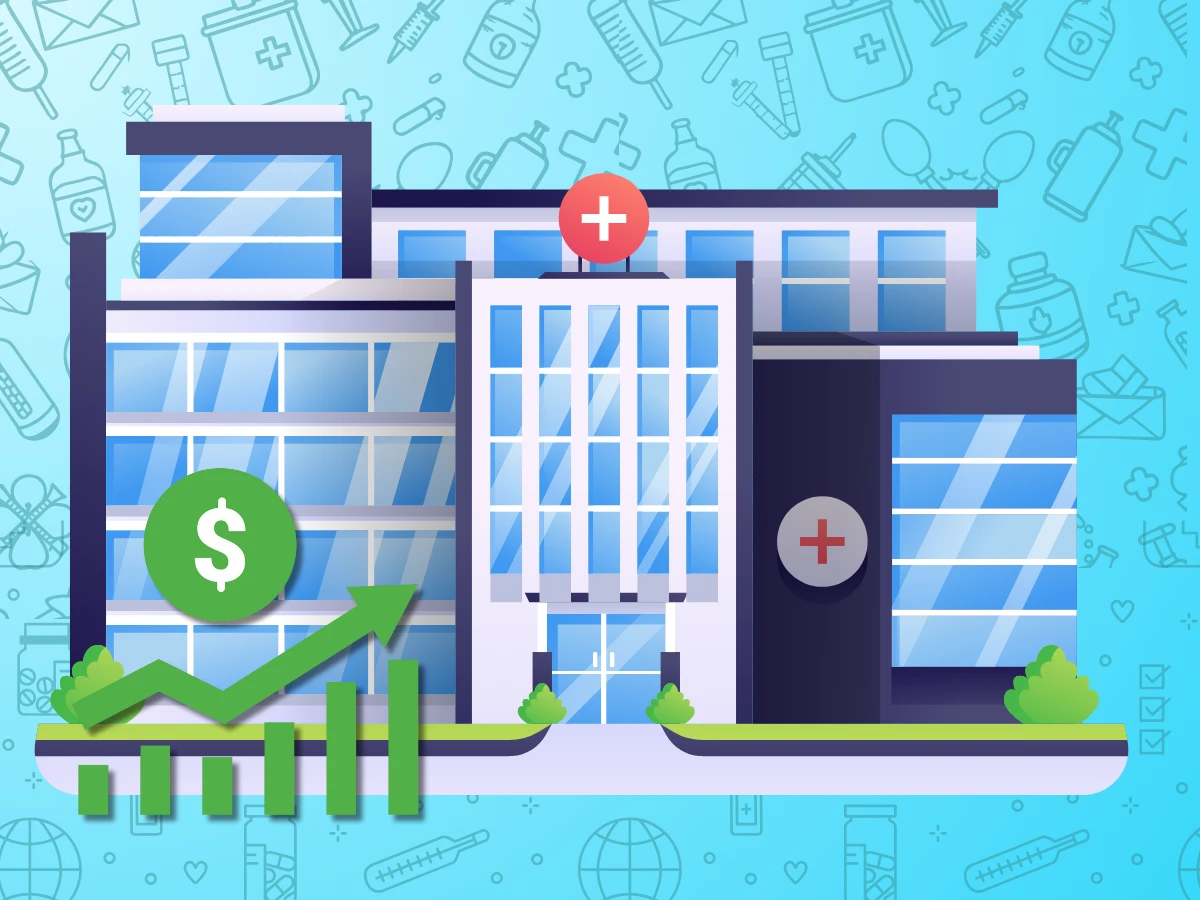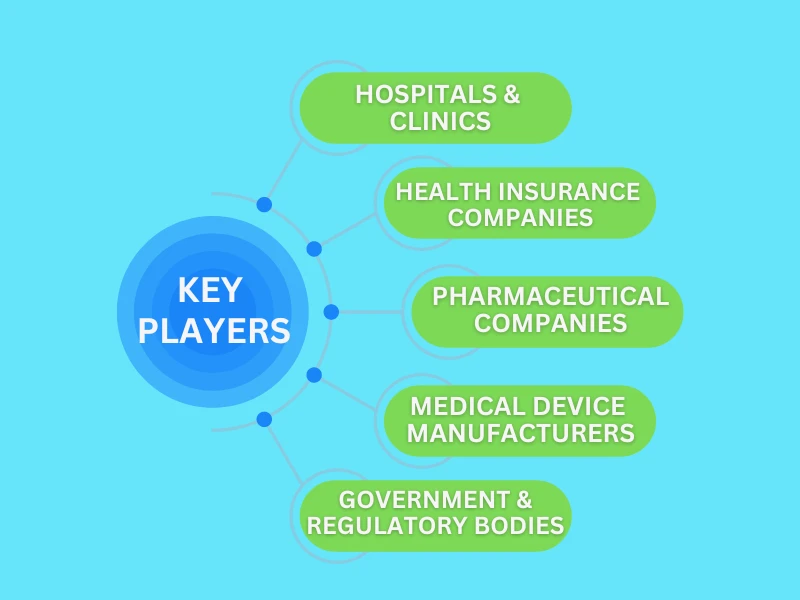Why Investing in Healthcare and Pharmaceuticals Matters

Introduction
The healthcare sector encompasses various services and products designed to maintain and improve health. This includes hospitals, clinics, medical devices, health insurance, and various support services. The pharmaceutical industry, a crucial subset of healthcare, focuses on developing, producing, and marketing medications. This industry plays a vital role in treating diseases and enhancing the quality of life. Together, these sectors form a substantial part of the global economy, with vast opportunities for investment due to their constant growth and innovation.
Current Trends and Market Size
Currently, the healthcare and pharmaceutical sectors are experiencing several transformative trends. Telemedicine has seen exponential growth, driven by the COVID-19 pandemic, highlighting the need for remote healthcare services. Digital health technologies like health apps and wearable devices are becoming increasingly popular, providing new data-driven insights and personalized care. In the pharmaceutical industry, biotechnology and the development of personalized medicine are key trends, focusing on creating treatments tailored to individual genetic profiles. The market size of these sectors is substantial and growing; the global healthcare market is projected to reach over $15 trillion by 2030, while the pharmaceutical market is expected to surpass $1.9 trillion by 2030. These trends and market dynamics indicate robust opportunities for investors looking to capitalize on the growth and innovation in healthcare and pharmaceuticals.
The Healthcare Sector
The healthcare sector encompasses many services, products, and organizations focused on maintaining and improving health. This sector includes various entities such as hospitals, clinics, health insurance companies, medical device manufacturers, and pharmaceutical firms. It plays a crucial role in preventing, diagnosing, and treating illnesses, ensuring that populations access necessary medical services and products.
Key Players and Stakeholders

Several key players and stakeholders are integral to the functioning of the healthcare sector. These include:
- Hospitals and Clinics:These institutions provide various medical services, from emergency care to specialized treatments.
- Health Insurance Companies:These organizations offer coverage plans that help individuals and families manage healthcare costs.
- Pharmaceutical Companies:These companies research, develop, and manufacture crucial medications for various health conditions.
- Medical Device Manufacturers:These firms produce equipment and devices to diagnose, treat, and manage medical conditions.
- Government and Regulatory Bodies:Government agencies and regulatory bodies oversee the healthcare sector, ensuring compliance with laws and regulations to protect public health.
The Pharmaceutical Industry
The pharmaceutical industry is dedicated to researching, developing, producing, and marketing medications. Its primary goal is to create drugs to prevent, treat, or cure diseases and improve patients’ quality of life.
Key Players
The pharmaceutical industry consists of two main types of companies: Big Pharma and biotech firms. Both play significant roles but differ in their focus and approach.
- Big Pharma: These are large, established pharmaceutical companies with extensive resources and a broad portfolio of products. They have substantial R&D budgets and can conduct large-scale clinical trials. Examples include Pfizer, Johnson & Johnson, and Merck. Big Pharma companies typically focus on a wide range of therapeutic areas and can simultaneously bring multiple drugs to market.
- Biotech Companies: These are smaller, innovative firms that focus on developing new therapies using biotechnology. Biotech companies often specialize in niche areas such as genetic engineering, immunotherapy, or personalized medicine. They tend to take on higher risks with the potential for high rewards. Examples include Gilead Sciences and Amgen. Biotech firms are known for their groundbreaking research and are often acquired by Big Pharma companies once their innovations show promise.
Market Trends and Innovations
Technological advancements are revolutionizing the healthcare sector, enhancing the quality of care and making medical services more efficient and accessible. One of the most significant developments is using artificial intelligence (AI) in treatment and diagnostics. This speeds up the diagnostic process and improves the precision of treatments.
Another notable advancement is the integration of wearable devices and health monitoring systems. Smartwatches and fitness trackers collect real-time health data, including heart beat rate, burned calories, physical activity, and sleep patterns. This data can monitor patients’ health remotely and detect potential issues early. Such continuous monitoring is particularly beneficial for managing chronic conditions like diabetes and hypertension.
Investment Opportunities in Healthcare

1. Healthcare Real Estate Investment Trusts (REITs)
Healthcare Real Estate Investment Trusts (REITs) are emerging as a promising investment avenue in India. With the growing demand for quality healthcare facilities, the need for modern hospitals, specialized clinics, and senior living communities is rising. Healthcare REITs offer investors the chance to participate in the healthcare infrastructure boom without directly owning property.
- Stable Income: Healthcare REITs provide a stable income through rental yields. The leases for healthcare facilities tend to be long-term, providing consistent rental income.
- Growth Potential: The Indian healthcare sector is expected to grow rapidly due to increased health awareness, a rising middle class, and government initiatives such as Ayushman Bharat.
- Regulatory Support: The Indian government is focusing on improving healthcare infrastructure, which includes promoting private investment in healthcare real estate.
2. Medical Equipment and Devices
India’s medical equipment and devices sector is another attractive investment opportunity. The market is growing due to increased healthcare spending, advancements in medical technology, and the rising prevalence of chronic diseases.
- Innovative Products: Companies developing innovative products such as diagnostic imaging devices, patient monitoring systems, and surgical instruments are witnessing significant demand.
- Government Initiatives: Initiatives like Make in India and the Production Linked Incentive (PLI) scheme for medical devices are boosting the sector by encouraging local manufacturing and reducing import dependency.
- Market Growth: The Indian medical device market is expected to grow significantly, driven by increased healthcare expenditures, hospital expansion, and the rise of telemedicine.
3. Health Insurance Companies
The health insurance sector in India presents substantial growth potential for investors. This segment is expanding rapidly with increasing awareness about health insurance and government policies promoting coverage.
- Rising Penetration: Health insurance penetration in India is still relatively low, presenting a vast opportunity for growth. Due to rising healthcare costs, more individuals and families are opting for health insurance policies.
- Government Support: Programs like Ayushman Bharat aim to provide health insurance to a large portion of the population, thereby increasing insurance companies' customer base.
- Innovation and Expansion: Health insurance companies are innovating with digital platforms and new products tailored to meet diverse customer needs. This innovation is attracting a broader customer base and driving growth.
4. Pharmaceutical Manufacturing
India is known as the "Pharmacy of the World" due to its large-scale pharmaceutical manufacturing capabilities. Given the global demand for affordable generic drugs and vaccines, investing in this sector can be highly profitable.
- Export Opportunities: Indian pharmaceutical companies are major exporters of generic drugs, with significant market shares in the US, Europe, and other regions.
- Domestic Demand: With a growing population and increasing healthcare access, the domestic demand for pharmaceuticals is also rising.
5. Healthcare Services
Investing in healthcare services, including hospitals, diagnostic centers, and telemedicine platforms, offers another lucrative opportunity.
- Hospital Chains: Investing in hospital chains provides exposure to a growing market. Private hospitals are expanding their networks to reach more patients and offer specialized services.
- Diagnostics and Pathology: Diagnostic centers and pathology labs are experiencing increased demand due to the rise in chronic diseases and the importance of early detection and preventive healthcare.
- Telemedicine: The telemedicine sector in India is growing rapidly, driven by increasing internet penetration and the need for remote healthcare services.
6. Digital Health and Health Tech
Investments in health tech startups and digital health platforms are gaining traction.
- Health Apps and Platforms: Digital health platforms offering services like online consultations, health tracking, and digital prescriptions are becoming popular.
- AI and Data Analytics: Companies leveraging AI and data analytics for predictive healthcare, personalized medicine, and operational efficiency are attracting significant investment.
- Wearable Devices: The market for wearable health devices, such as fitness trackers and smartwatches, is growing.
Risks and Challenges
1. Regulatory and Legal Risks
Investing in healthcare and pharmaceuticals comes with significant regulatory and legal risks. Government agencies heavily regulate these sectors.
The approval process is fraught with uncertainty. A drug or device might fail to receive approval due to safety concerns, insufficient efficacy, or other issues identified during clinical trials. Such setbacks can lead to significant financial losses for companies and their investors. Additionally, even after a product is approved, it must continuously comply with regulatory standards, and any violations can result in fines, legal actions, or product recalls, further impacting the company's financial health.
Legal risks also extend to patent disputes and intellectual property rights. Pharmaceutical companies often engage in legal battles over patent infringements, which can be costly and divert resources from innovation and development. Investors need to be aware of these potential legal challenges and understand the regulatory environment in which healthcare and pharmaceutical companies operate to make informed investment decisions.
2. Market Competition and Pricing Pressures
The healthcare and pharmaceutical industries are highly competitive, with numerous players striving for market share. This competition can be fierce, particularly in developing and marketing new drugs and medical technologies. A constant concern is the risk of being outpaced by competitors or having a new product eclipsed by a more practical alternative.
Pricing pressures add another layer of complexity. Governments, insurance companies, and consumers increasingly demand affordable healthcare solutions, putting pressure on companies to lower prices. This is especially true for pharmaceutical companies, where drug pricing has become hotly debated. High drug prices can lead to public backlash and regulatory scrutiny, while lower prices can squeeze profit margins. Balancing these pressures is a significant challenge for companies and impacts their financial performance and attractiveness to investors.
3. Ethical Considerations in Healthcare Investments
Ethical considerations are increasingly important for investors in healthcare and pharmaceuticals. These sectors directly impact human health and well-being, making ethical conduct paramount. Companies are expected to adhere to high transparency, integrity, and social responsibility standards.
Investors also pay closer attention to corporate social responsibility (CSR) initiatives. Companies prioritizing patient access to essential medicines, investing in underserved communities, and committing to sustainable practices are viewed more favorably. Ethical or impact investing aims to generate both financial returns and positive social outcomes. This approach aligns investments with personal values and contributes to broader societal benefits.
Investors should conduct thorough due diligence to navigate ethical considerations, examining a company's history, practices, and commitment to ethical standards. Screening for environmental, social, and governance (ESG) criteria can help identify companies that not only promise financial returns but also adhere to ethical principles. By prioritizing ethical investments, investors can support companies that contribute positively to society while mitigating risks associated with unethical behaviour.
Conclusion
Investing in healthcare and pharmaceuticals offers a compelling opportunity for both seasoned investors and beginners. Technological advancements, innovative research, and an increasing demand for medical services and products drive the sector's potential for growth. By understanding the various investment opportunities, such as healthcare REITs, medical equipment, and speciality pharmaceuticals, investors can diversify their portfolios and tap into these industries' stability and growth potential.
However, it is crucial to acknowledge and navigate the inherent risks and challenges. Regulatory and legal hurdles, market competition, pricing pressures, and ethical considerations must be carefully evaluated.
By balancing the opportunities with the associated risks, investors can benefit from the dynamic and essential healthcare and pharmaceutical sectors. These investments not only promise financial returns but also contribute to the advancement of medical science and the improvement of global health outcomes, making them both a financially and socially rewarding choice.








